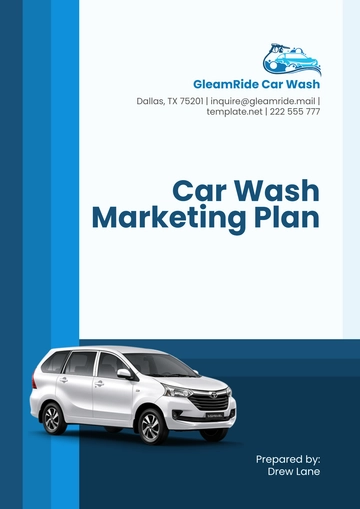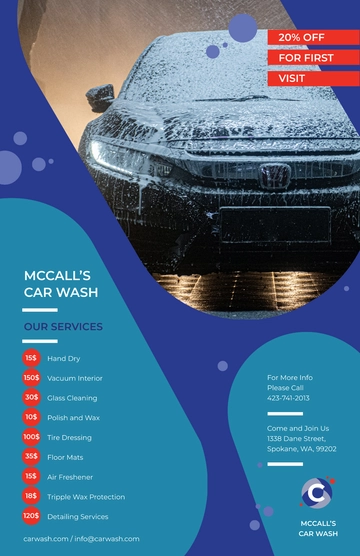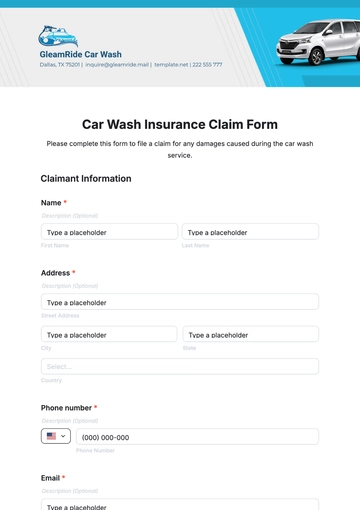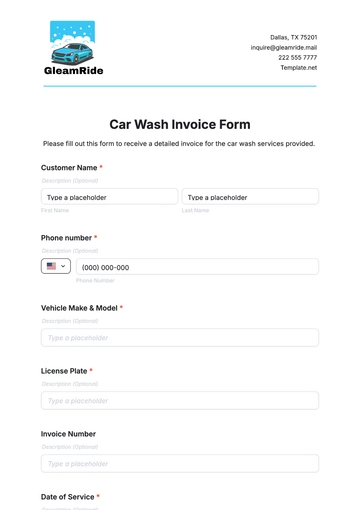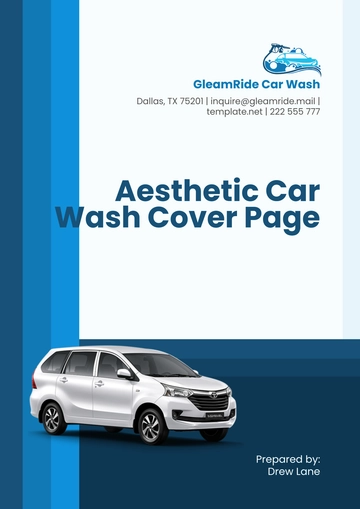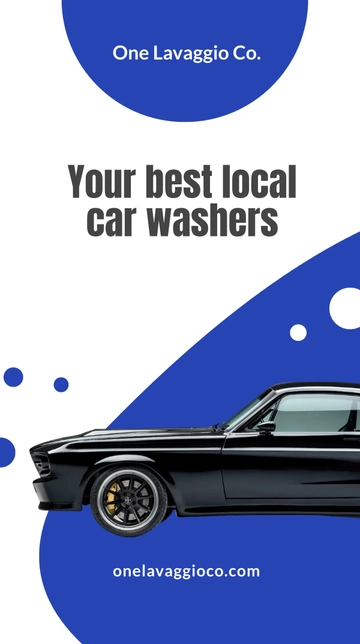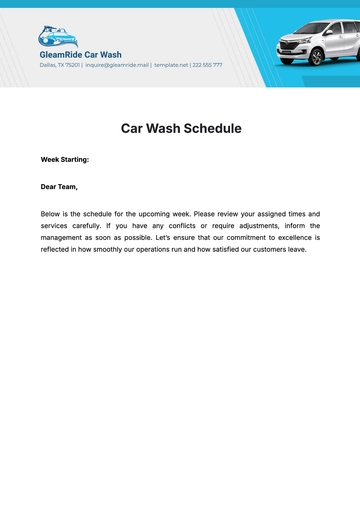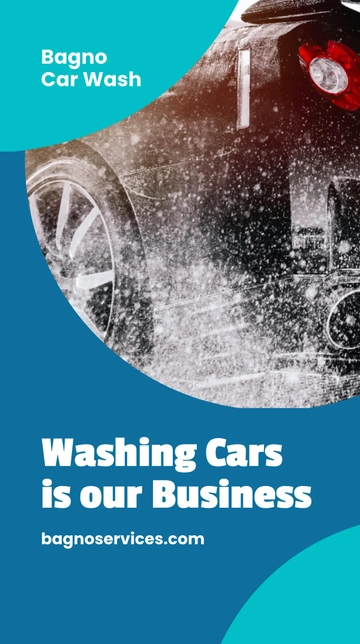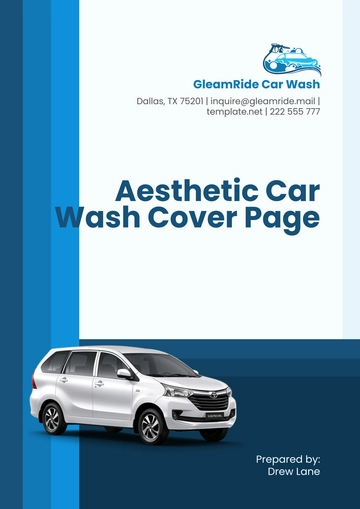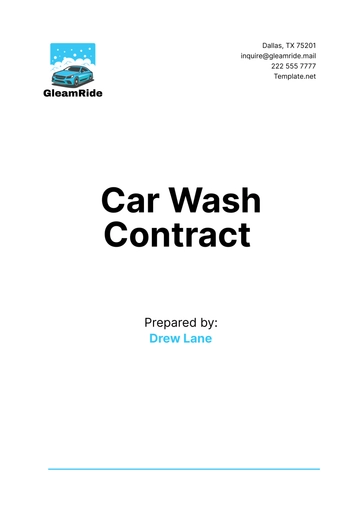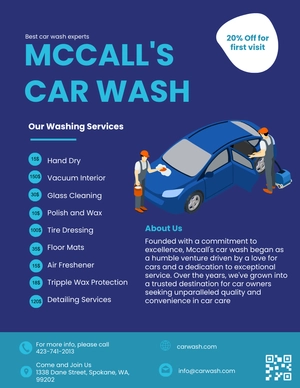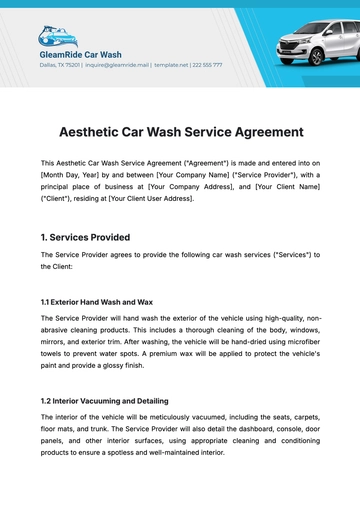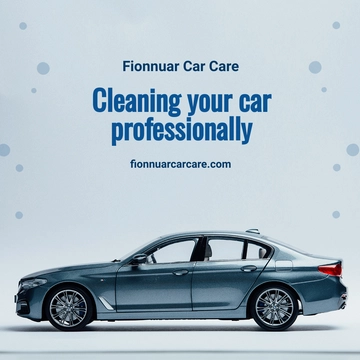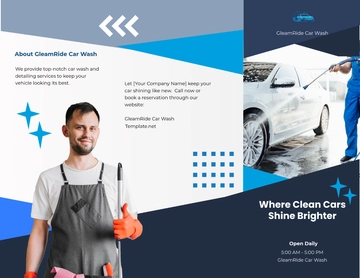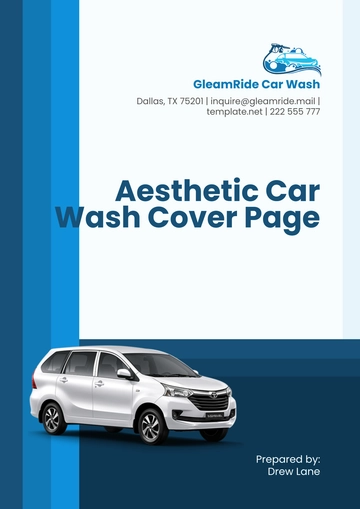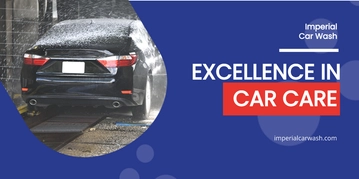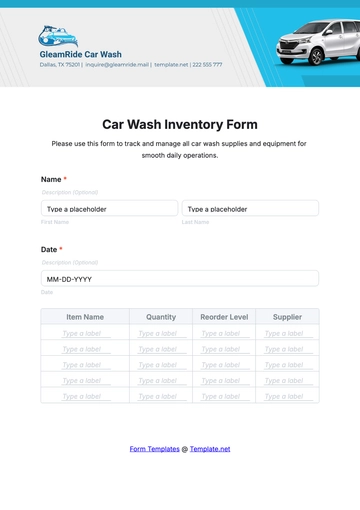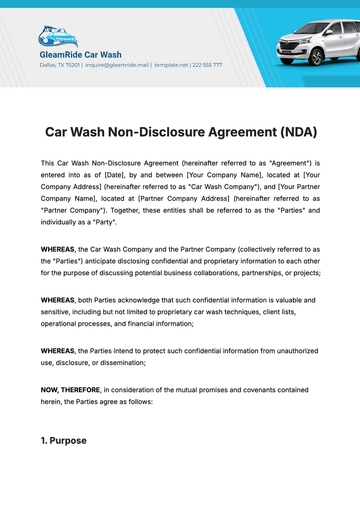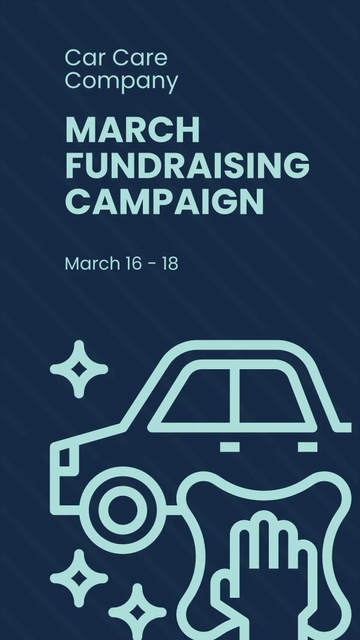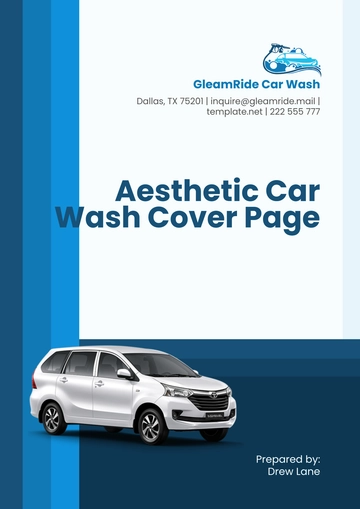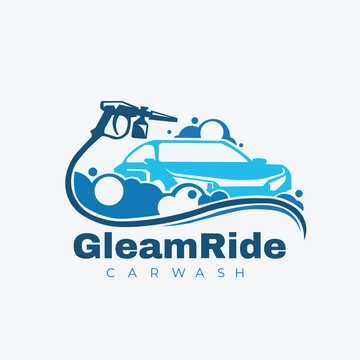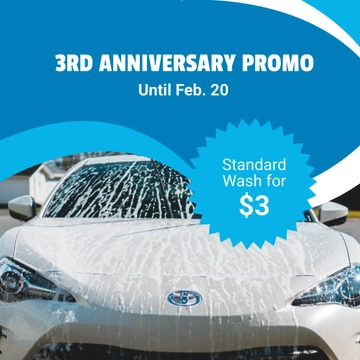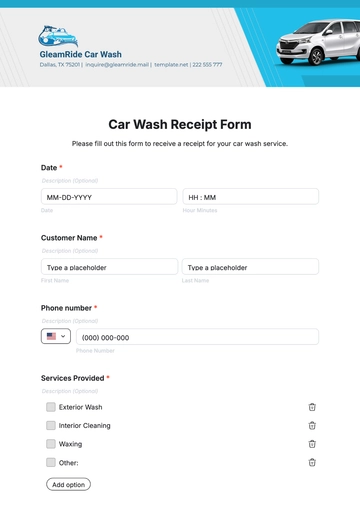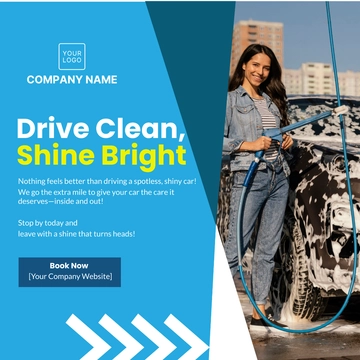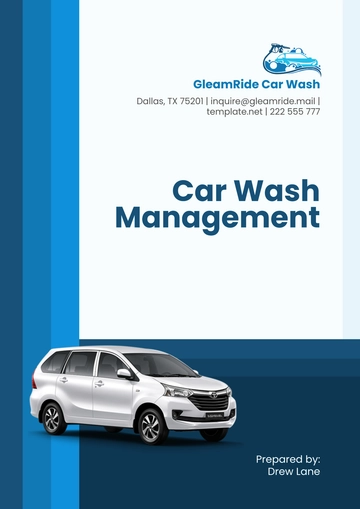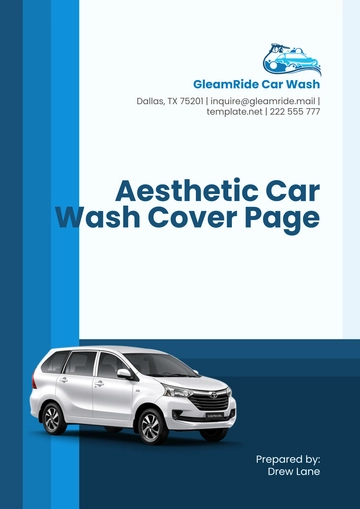Free Blank Car Wash Cash Flow Feasibility Study
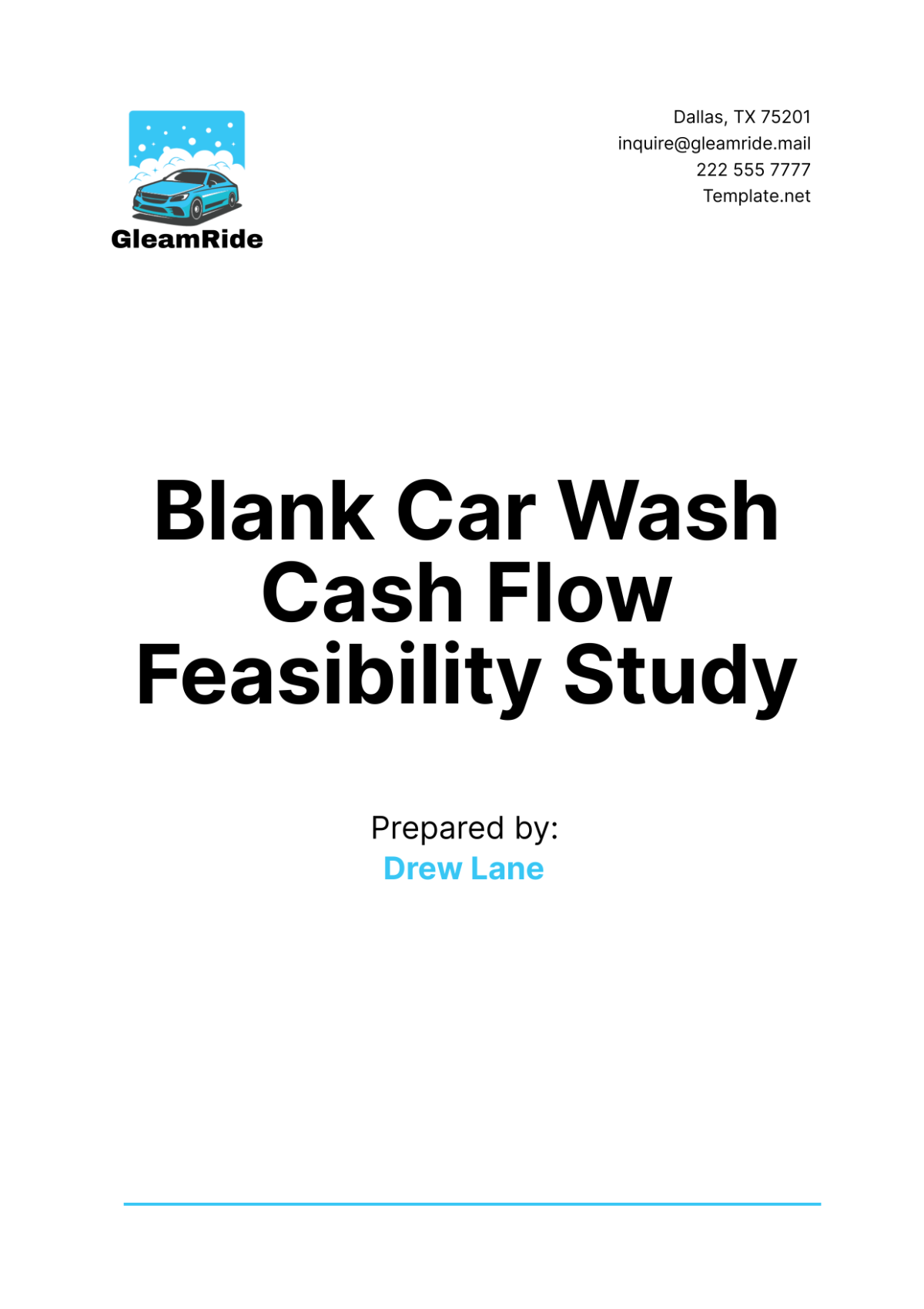
1. Executive Summary
[Your Company Name] is poised to establish a cutting-edge car wash facility in [City, State], focused on delivering high-quality, eco-friendly car wash services. This cash flow feasibility study aims to evaluate the financial viability of the proposed venture by analyzing projected cash inflows and outflows. This study will provide a detailed examination of the initial investment, ongoing operational costs, revenue projections, and potential financial performance over the first three years. The objective is to ensure that the business can achieve and maintain a positive cash flow, ensuring long-term sustainability and profitability.
1.1 Business Objectives
Achieve monthly revenue of $50,000 within the first year.
Build a loyal customer base of 1,000 recurring clients by the end of the first year.
Implement eco-friendly car wash techniques to reduce water usage by 40%.
1.2 Financial Objectives
Generate annual revenue of $600,000 by the second year.
Maintain a gross profit margin of at least 60%.
Achieve a break-even point within the first six months of operations.
2. Initial Investment
2.1 Facility Lease and Renovation
Securing a suitable location and preparing it for operations are crucial first steps. This includes leasing costs and any necessary renovations to accommodate the car wash equipment and customer facilities.
Expense Category | Cost ($) |
|---|---|
Facility Lease (12 months) | 60,000 |
Renovation and Setup | 100,000 |
Total | 160,000 |
2.2 Equipment Purchase
Investing in high-quality equipment is essential for providing top-notch car wash services. This includes washing machines, water recycling systems, and other necessary tools.
Equipment | Cost ($) |
|---|---|
Automatic Car Wash System | 100,000 |
Water Recycling System | 30,000 |
High-Pressure Washers | 20,000 |
Detailing Equipment | 10,000 |
Payment Systems | 5,000 |
Total | 165,000 |
2.3 Initial Inventory
Stocking up on essential supplies and materials for daily operations is vital. This includes cleaning agents, waxes, and other consumables.
Inventory Item | Cost ($) |
|---|---|
Cleaning Agents | 5,000 |
Waxes and Polishes | 3,000 |
Towels and Sponges | 2,000 |
Miscellaneous Supplies | 2,000 |
Total | 12,000 |
2.4 Marketing and Advertising
Effective marketing and advertising campaigns are necessary to attract customers to the new car wash facility. This includes online marketing, local advertising, and promotional events.
Marketing Activity | Cost ($) |
|---|---|
Online Marketing Campaigns | 10,000 |
Local Advertising | 5,000 |
Grand Opening Event | 3,000 |
Total | 18,000 |
2.5 Working Capital
Working capital is required to cover initial operating expenses until the car wash starts generating sufficient revenue. This includes salaries, utilities, and other ongoing costs.
Expense Category | Cost ($) |
|---|---|
Salaries (3 months) | 45,000 |
Utilities (3 months) | 6,000 |
Miscellaneous Expenses | 4,000 |
Total | 55,000 |
2.6 Total Initial Investment
The total initial investment required for [Your Company Name] is summarized below.
Expense Category | Cost ($) |
|---|---|
Facility Lease and Renovation | 160,000 |
Equipment Purchase | 165,000 |
Initial Inventory | 12,000 |
Marketing and Advertising | 18,000 |
Working Capital | 55,000 |
Total Initial Investment | 410,000 |
3. Revenue Projections
3.1 Monthly Revenue Projections
The following table outlines the projected monthly revenue from various services offered by [Your Company Name].
Service | Price ($) | Customers/Month | Monthly Revenue ($) |
|---|---|---|---|
Basic Car Wash | 10 | 2,000 | 20,000 |
Full-Service Car Wash | 25 | 800 | 20,000 |
Detailing Services | 50 | 200 | 10,000 |
Membership Programs | 30/month | 500 | 15,000 |
Additional Services | 5,000 | ||
Total Monthly Revenue | 70,000 |
3.2 Annual Revenue Projections
The following table outlines the projected annual revenue from various services offered by [Your Company Name].
Service | Annual Revenue ($) |
|---|---|
Basic Car Wash | 240,000 |
Full-Service Car Wash | 240,000 |
Detailing Services | 120,000 |
Membership Programs | 180,000 |
Additional Services | 60,000 |
Total Annual Revenue | 840,000 |
3.3 Revenue Growth Projections
Projected revenue growth over the first three years of operation is outlined below.
Year | Revenue ($) | Growth Rate (%) |
|---|---|---|
2050 | 600,000 | |
2051 | 720,000 | 20 |
2052 | 864,000 | 20 |
4. Operating Expenses
4.1 Salaries and Wages
Paying competitive salaries to attract and retain skilled employees is essential for maintaining high service standards.
Position | Monthly Salary ($) | Number of Employees | Total Monthly Cost ($) | Annual Cost ($) |
|---|---|---|---|---|
Manager | 5,000 | 1 | 5,000 | 60,000 |
Technicians | 3,000 | 6 | 18,000 | 216,000 |
Customer Service Representatives | 2,500 | 4 | 10,000 | 120,000 |
Total Salaries and Wages | 33,000 | 396,000 |
4.2 Utilities and Maintenance
Regular maintenance and utilities are crucial for smooth operations and customer satisfaction.
Expense Category | Monthly Cost ($) | Annual Cost ($) |
|---|---|---|
Utilities (Water, Electricity) | 2,000 | 24,000 |
Maintenance and Repairs | 1,500 | 18,000 |
Cleaning Supplies | 1,000 | 12,000 |
Total Utilities and Maintenance | 54,000 |
4.3 Marketing and Advertising
Ongoing marketing efforts are necessary to retain existing customers and attract new ones.
Marketing Activity | Monthly Cost ($) | Annual Cost ($) |
|---|---|---|
Online Marketing Campaigns | 2,000 | 24,000 |
Local Advertising | 1,000 | 12,000 |
Promotions and Discounts | 500 | 6,000 |
Total Marketing and Advertising | 42,000 |
4.4 Miscellaneous Expenses
Miscellaneous expenses cover various operational costs that do not fall into the above categories.
Expense Category | Monthly Cost ($) | Annual Cost ($) |
|---|---|---|
Office Supplies | 500 | 6,000 |
Insurance | 1,000 | 12,000 |
Miscellaneous Expenses | 500 | 6,000 |
Total Miscellaneous Expenses | 24,000 |
4.5 Total Operating Expenses
The total operating expenses for [Your Company Name] are summarized below.
Expense Category | Monthly Cost ($) | Annual Cost ($) |
|---|---|---|
Salaries and Wages | 33,000 | 396,000 |
Utilities and Maintenance | 4,500 | 54,000 |
Marketing and Advertising | 3,500 | 42,000 |
Miscellaneous Expenses | 2,000 | 24,000 |
Total Operating Expenses | 43,000 | 516,000 |
5. Cash Flow Projections
5.1 Monthly Cash Flow Projections
The following table outlines the projected monthly cash flow for the first year of operations.
Month | Revenue ($) | Operating Expenses ($) | Net Cash Flow ($) |
|---|---|---|---|
1 | 50,000 | 43,000 | 7,000 |
2 | 55,000 | 43,000 | 12,000 |
3 | 60,000 | 43,000 | 17,000 |
4 | 65,000 | 43,000 | 22,000 |
5 | 70,000 | 43,000 | 27,000 |
6 | 75,000 | 43,000 | 32,000 |
7 | 80,000 | 43,000 | 37,000 |
8 | 85,000 | 43,000 | 42,000 |
9 | 90,000 | 43,000 | 47,000 |
10 | 95,000 | 43,000 | 52,000 |
11 | 100,000 | 43,000 | 57,000 |
12 | 105,000 | 43,000 | 62,000 |
Total | 840,000 | 516,000 | 324,000 |
5.2 Annual Cash Flow Projections
The following table outlines the projected annual cash flow for the first three years of operations.
Year | Revenue ($) | Operating Expenses ($) | Net Cash Flow ($) |
|---|---|---|---|
2050 | 600,000 | 516,000 | 84,000 |
2051 | 720,000 | 516,000 | 204,000 |
2052 | 864,000 | 516,000 | 348,000 |
Total | 2,184,000 | 1,548,000 | 636,000 |
5.3 Cumulative Cash Flow Projections
The following table outlines the projected cumulative cash flow for the first three years of operations.
Year | Cumulative Revenue ($) | Cumulative Operating Expenses ($) | Cumulative Net Cash Flow ($) |
|---|---|---|---|
2050 | 600,000 | 516,000 | 84,000 |
2051 | 1,320,000 | 1,032,000 | 288,000 |
2052 | 2,184,000 | 1,548,000 | 636,000 |
6. Break-Even Analysis
The break-even analysis determines the point at which [Your Company Name] will cover all its costs and begin generating a profit.
6.1 Break-Even Point Calculation
The break-even point is calculated by dividing the total fixed costs by the contribution margin ratio.
Expense Category | Monthly Cost ($) | Annual Cost ($) |
|---|---|---|
Fixed Costs (Rent, Salaries) | 38,000 | 456,000 |
Variable Costs (COGS) | 17,000 | 204,000 |
Total Costs | 55,000 | 660,000 |
Contribution Margin (%) | 66 | |
Break-Even Point (Monthly $) | 57,576 | |
Break-Even Point (Annual $) | 690,912 |
6.2 Break-Even Analysis Results
Based on the break-even analysis, [Your Company Name] needs to generate $57,576 in monthly revenue to cover all fixed and variable costs. This translates to an annual revenue requirement of $690,912 to break even.
7. Cash Flow Management
Effective cash flow management is critical to the success of [Your Company Name]. This section outlines strategies to manage cash flow efficiently and ensure financial stability.
7.1 Cash Flow Monitoring
Regular monitoring of cash flow is essential to identify potential issues early and take corrective action. This includes tracking monthly revenue, expenses, and net cash flow to ensure that the business remains on track to achieve its financial goals.
7.2 Contingency Planning
Contingency planning involves setting aside reserves to cover unexpected expenses or revenue shortfalls. This can include maintaining a cash reserve equivalent to three months' operating expenses to ensure that the business can continue to operate smoothly in case of unforeseen events.
7.3 Cost Control Measures
Implementing cost control measures can help optimize cash flow and improve profitability. This includes negotiating better terms with suppliers, reducing waste, and implementing energy-saving practices to lower utility costs.
7.4 Revenue Enhancement Strategies
Enhancing revenue through various strategies can also improve cash flow. This includes offering additional services, upselling to existing customers, and expanding the customer base through targeted marketing campaigns.
8. Risk Analysis
Identifying potential risks is crucial for ensuring the success and sustainability of [Your Company Name]. Key risks include:
Weather Dependency: Adverse weather conditions can lead to decreased customer turnout and revenue fluctuations.
Economic Fluctuations: Economic downturns can reduce consumer spending on non-essential services like car washes.
Competition: The presence of established competitors and new entrants in the market can pose a significant challenge.
Regulatory Changes: Changes in environmental regulations and industry standards can impact operations and increase costs.
Technological Disruptions: Rapid advancements in technology can render existing equipment and practices obsolete.
8.1 Mitigation Strategies
Weather Dependency: Implement marketing strategies and promotions during off-peak seasons and bad weather periods. Offering indoor detailing services and discounted rates can help maintain customer interest.
Economic Fluctuations: Diversify service offerings to include more affordable options and packages to attract cost-conscious customers during economic downturns. Implement loyalty programs and membership plans to ensure a steady revenue stream.
Competition: Differentiate through superior customer service, eco-friendly practices, and advanced technology. Build strong customer relationships and maintain high service quality to establish a loyal customer base.
Regulatory Changes: Stay updated on regulatory changes and invest in necessary upgrades to comply with new standards. Develop contingency plans to address potential regulatory impacts.
Technological Disruptions: Continuously invest in advanced technology and stay abreast of industry trends. Allocate resources for research and development to remain competitive and innovative.
9. Conclusion
This comprehensive cash flow feasibility study demonstrates the financial viability of establishing a state-of-the-art car wash facility in [City, State]. By carefully managing startup costs, operating expenses, and revenue projections, [Your Company Name] can achieve profitability and sustainable growth. The detailed financial analysis and risk mitigation strategies provided in this study ensure that the proposed car wash can successfully meet customer needs and environmental standards, securing a strong position in the competitive car wash industry.
- 100% Customizable, free editor
- Access 1 Million+ Templates, photo’s & graphics
- Download or share as a template
- Click and replace photos, graphics, text, backgrounds
- Resize, crop, AI write & more
- Access advanced editor
Optimize your financial strategy with Template.net's Blank Car Wash Cash Flow Feasibility Study Template. This template is fully customizable with our AI editor tool, offering you a robust framework to project and analyze cash inflows and outflows. Essential for assessing the liquidity and financial feasibility of your car wash business, it ensures you maintain a healthy financial balance.

